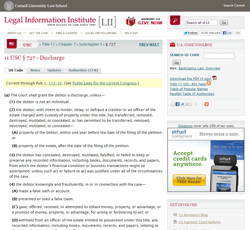
One question we’re frequently asked is, “If I file for bankruptcy, what property am I allowed to keep?”
Indiana has recently changed the dollar amounts relating to bankruptcy property exemptions. Effective March 1, 2022, the provisions relating to the value of the assets a debtor is allowed to keep when filing for a bankruptcy have been adjusted to increase the value of a debtor’s exempted personal property.
The three types of assets affected by the adjustment are a debtor’s personal or family residence, other real estate or tangible property, and intangible personal property. The amounts of the increase are:
- Real or Personal Property Constituting Family Residence of the Debtor or Dependent of the Debtor – $22,750 (previously $19,300 / appx. 15.5% increase)
- Other Real Estate or Tangible Property – $12,100 (previously $10,250 / appx. 18% increase)
- Intangible Personal Property – $450 (previously $400/ appx. 12% increase) – includes money on deposit in the debtor’s bank account, money owed to the debtor from a third party, unreceived tax refunds, inheritances, lawsuit proceeds, etc.
For further detail, see Indiana Code 34-55-10-2.
Creditors or trustees are not able to liquidate these exempted assets to satisfy debts included in a bankruptcy filing in Indiana.
These new asset exemption amounts will remain in effect until the next required adjustment by the Indiana General Assembly, which will be no later than March 1, 2028. To view the official posted ruling on the State of Indiana website, click here: Title 750 Department of Financial Institutions – Emergency Rule – LSA Document #22-37(E)

